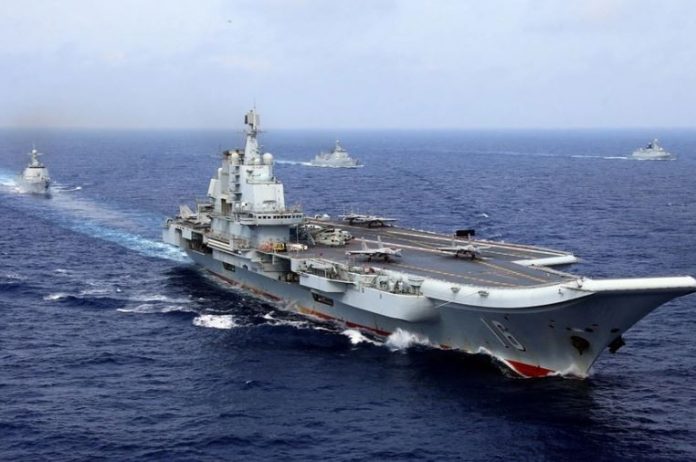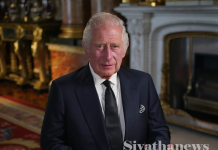The United States has warned China against what the Philippines and Taiwan see as increasingly aggressive moves, reminding Beijing of Washington’s obligations to its partners, as the two rival powers step up their naval activities in the South China Sea.
“An armed attack against the Philippines’ armed forces, public vessels or aircraft in the Pacific, including in the South China Sea, will trigger our obligations under the US-Philippines Mutual Defense Treaty,” State Department spokesman Ned Price told reporters on Wednesday.
“We share the concerns of our Philippine allies regarding the continued reported massing of PRC maritime militia near the Whitsun Reef,” Price said, referring to the People’s Republic of China.
More than 200 Chinese boats were first spotted on March 7 at Whitsun Reef, about 320 kilometres (200 miles) west of Palawan Island and within the Philippines’s exclusive economic zone (EEZ).
Since the first reported sighting, the vessels have scattered across a wider area of the South China Sea within Manila’s EEZ as defined by the International Court of Arbitration at The Hague.
For weeks, Manila has called on Beijing to withdraw the “maritime militia” vessels, saying their incursion into the Philippines’s EEZ is illegal as defined by the International Court of Arbitration at The Hague.
China – which claims almost the entirety of the resource-rich sea – has refused, insisting they are fishing boats sheltering from bad weather and are allowed to be there.
In response, Manila warned that the presence of the vessels could ignite “unwanted hostilities” between the two nations.
For weeks, Manila has called on Beijing to withdraw the “maritime militia” vessels, saying their incursion into the Philippines’s EEZ is illegal as defined by the International Court of Arbitration at The Hague.
China – which claims almost the entirety of the resource-rich sea – has refused, insisting they are fishing boats sheltering from bad weather and are allowed to be there.
In response, Manila warned that the presence of the vessels could ignite “unwanted hostilities” between the two nations.

Taiwan Relations Act
Tensions have also risen with Taiwan, which Beijing claims as part of China, with the self-governing democracy on Wednesday reporting that 15 more of the mainland’s planes crossed into the island’s air defence zone.
Taipei warned that it would defend itself “to the very last day” if necessary.
On Monday, the Chinese carrier, Liaoning, also led a naval exercise near Taiwan, and Beijing said that such drills will become regular occurrences.
Price, the US spokesman, voiced “concern” about the Chinese moves, saying: “The United States maintains the capacity to resist any resort to force or other forms of coercion that would jeopardise the security or the social or economic system of the people on Taiwan.”
He was using language from the Taiwan Relations Act, under which the US is obliged to provide the island with the means to defend itself against Beijing.
The US issued the latest statement as Beijing confirmed that it had tracked the USS John McCain destroyer that sailed through the Taiwan Strait on Wednesday.
“The US move to send warship to sail through the Taiwan Strait and hype it publicly is an old trick to ‘manipulate’ the cross-Strait situation,” Senior Colonel Zhang Chunhui, the spokesman for the Chinese People’s Liberation Army (PLA) Eastern Theatre Command, said in a statement.
“China is firmly opposed to that,” he said.
The US earlier defended its latest naval activity calling it a “routine” transit.
“The ship’s transit through the Taiwan Strait demonstrates the US commitment to a free and open Indo-Pacific. The United States military will continue to fly, sail, and operate anywhere international law allows,” the US Navy said in a statement.
President Joe Biden has pledged to mount a robust defence of its allies and, in a rare point of continuity with his predecessor former President Donald Trump, has supported a strong response against Chinese assertiveness.
Source: AL JAZEERA AND NEWS AGENCIES












